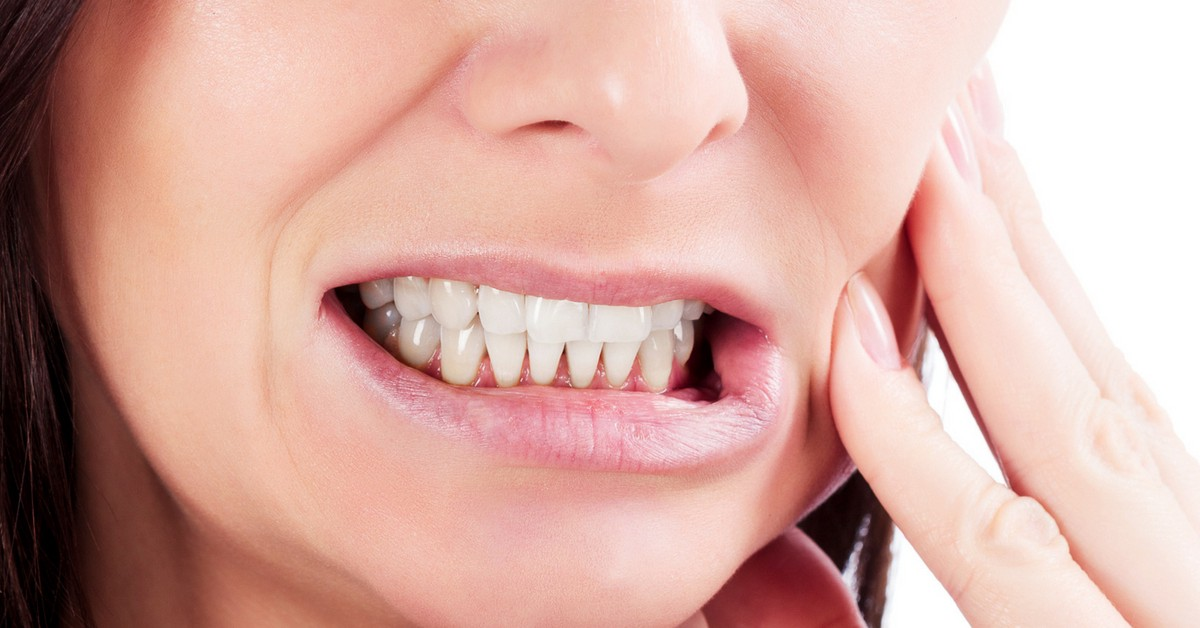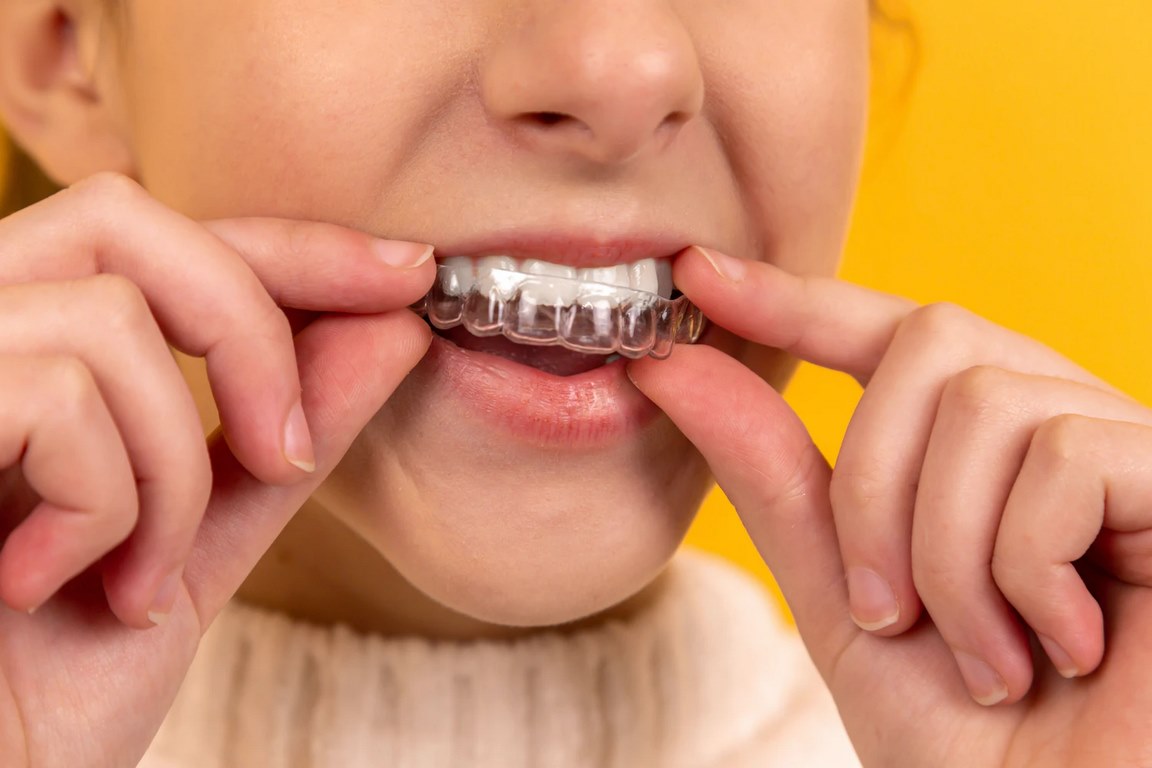Teeth grinding, also known as bruxism, often occurs during sleep and is known as nocturnal bruxism.
You will probably grind and clench your teeth from time to time if you have this condition in some cases.
While teeth grinding doesn’t usually cause harm, it might damage the teeth and lead to other health complications if done regularly.

If you grind your teeth frequently, there are a few things you can do to stop it. Some treatment remedies may work better than others.
However, this usually depends on the underlying issue of your teeth grinding and the symptoms behind it.
Additionally, this problem can also be annoying if it’s persistent. Here are some techniques that you can borrow to deal with bruxism.
1. Try a Night Guard
Using a customized night guard is one of the best options to protect yourself against teeth grinding.
A night guard provides you with a comfortable and reliable barrier when you’re sleeping that stays intact.
According to a review from Sleep-Reviews.com, it’s best to consult your dentist, who will recommend a night guard tailored for you.
This is your best chance since a mouth guard will protect against teeth grinding and is designed specifically for your mouth shape.
You can also get a night guard from your local pharmacy though it’s non-custom.
Additionally, some are even sold online. The problem with these types is they might fit less because they are not customized for your mouth type.
Although they are cheap, they can feel loose or like they’re moving around in your mouth. However, they still do an excellent job of protecting your teeth from damages caused by bruxism.
2. Get Checked for Underlying Medical Conditions
In some cases, teeth grinding can be caused by underlying health ailments. This is why we recommend getting checked for any health issue that is causing bruxism.
Most dentists say that teeth grinding is a symptom that may be combated by treating specific underlying health ailments.
This is especially critical for conditions like sleep apnea and some other sleep disorders that can lead to teeth grinding.
If teeth grinding is directly linked to stress, it would be best to work with a therapist to reduce the effects.
Additionally, bruxism can be a side effect of medications from other health conditions.
If you’re taking some medication, do some background research and determine if teeth grinding is a possible side effect.
If it’s a cause, you can work with your healthcare provider to see if you can change or adjust your prescription for one that will not cause bruxism.
3. Stay Calm
Studies show that almost 65% of bruxism sufferers grind and clench their teeth because of stress and anxiety.
The dangers of these two conditions are well-known to us, mainly if they are not addressed. Before sleeping at night, we recommend you take some time to wind down if you’ve had a long day.
You can also take a warm bubble bath, read your favorite book, or practice meditation and mindfulness activities.
These activities can help your body to remove any of the day’s negative energy. This also allows your body to release any lingering tension.
While some treatment options are expensive, this is the cheapest and easiest method to treat teeth grinding.
Additionally, it will help if you talk to a therapist or a close friend if you’re having anxiety and depression issues.
If you have such an issue, a therapist may prescribe medications to lower your stress and anxiety levels.
4. Work on Your Sleep Routine
Improving your sleep hygiene can help curb the effects of bruxism. In simple terms, sleep hygiene is the actions and routines you incorporate into your life to refine your sleep.
Additionally, it would help if you also refrained from eating or drinking any substance that will interfere with your sleep.
First, you can start by creating and following a consistent sleep schedule. This means going to bed and waking up at approximately the same time every day.
Ensure you set convenient hours that allow you to sleep for the recommended hours each night. Secondly, you should also work on your pre-sleep routine.
This means working on your pre-sleep actions in the same order before sleeping. For instance, this may include putting on your bedtime gown, brushing your teeth, some light meditation or yoga, etc.
Finally, reduce your screen time an hour before sleeping. This allows your mind to detach itself from distractions posed by your laptop and smartphone.
5. Exercise Your Jaw and Tongue Muscles
These exercises can help you relax the jaw and facial muscles. Having such exercises helps to maintain a proper alignment of your jaw.
While you can do these exercises at home, we recommend working with a physical therapist since they understand what works and what doesn’t.
If you want to DIY, start by opening your mouth wide while touching your tongue to your upper front teeth. This exercise helps to relax the jaw.
Also, try pronouncing the letter “N” out loud. This prevents your top and bottom teeth jaws from getting in contact, which helps you avoid clenching.
If you try these exercises several times per day, it may help stretch and relax the clenching and tooth grinding muscles. You may seek the help of cosmetic dentistry in batavia il to gain more insight on what would work best
6. It’s Time to Switch Your Diet and Eating Habits
In some cases, teeth grinding is caused by foods that cause poor sleep and poor digestion. This is why you should consider eliminating or reducing such foods.
This includes but is not limited to coffee, tea, chocolate, alcohol, sports drinks, and food substances with high levels of sugar content.
Additionally, it will help if you eliminate some sleep-harming recreational drugs like cigarettes or nicotine substances.
If you have indigestion problems, you should eliminate foods that are a trigger for you. Also, ensure you give your body ample time to digest food and between eating and sleeping.
Bruxism is a common dental condition with many possible causes. This is why we recommend treating the condition early if you want to avoid major dental complications in the future.
Please consult your physician or dentist as they are a good starting point in diagnosing and treating teeth grinding.
Finally, using the tips mentioned above will also help to solve your teeth grinding condition.











